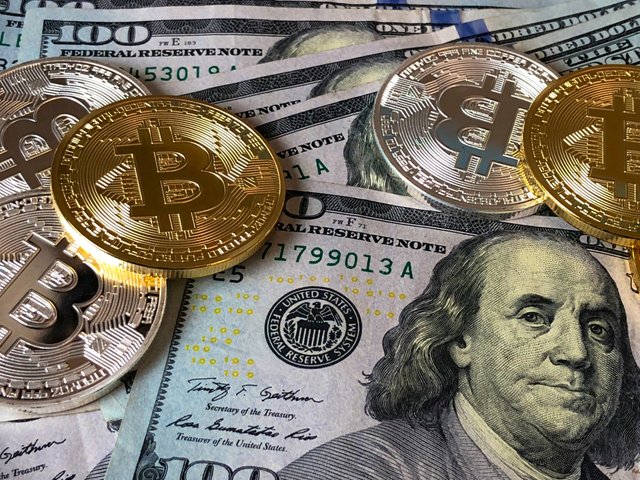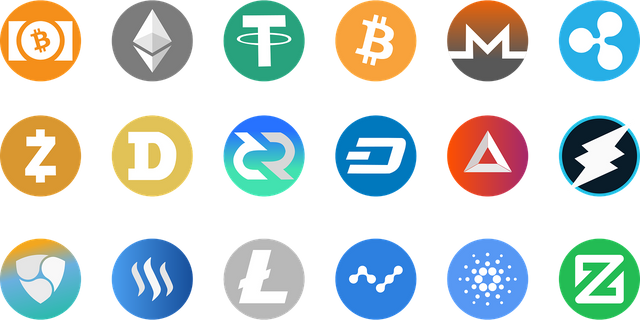What is Money? - Fiat Vs. Crypto
Thinking about cryptocurrencies, we all have to admit that it's not simply just an investment, it's money. So we all should be aware of the fact what money even is if we want to understand the value, and the potential opportunities cryptocurrencies offer to us.
Many people who don't know much about cryptocurrencies asked me things like 'why is this even worth anything?' and maybe some of you are still thinking the same way.

Why do we even need Money?
Money is a representation and store of value, a tool we need to exchange goods and services to keep track of ownership and worth.
To give an easy example, there were three farmers, farmer #1 has potatoes, farmer #2 had melons, and farmer #3 had milk. Now they wanted to exchange these goods, but farmer #1 wants just some milk, no melons, farmer #2 wants some melons and potatoes and farmer #3 simply wants to get rid of his milk before it gets bad. So instead of directly exchanging these goods for another, to have one thing they can all exchange into, they need something with worth they all agree on. And this is where money comes in, with money no one is forced to accept the goods of the others if they don't want to, they can all agree on a represention of store of value, something that has worth. But there are coming some problems with that.
What is the Problem with Money?
To explain which problem money has in general, we will go on with the example above. Let's say they would all agree on having 10 round formed stones of money as a start. They are exchanging around and it's all fine until there comes another person who wants to exchange with them, and they say he doesn't have their money, the round stones they agreed on. He went away and came back with 50 round stones and wanted to buy all their goods. So they figured they could only use something as money that isn't easy or possible to fake and limited in supply. That's where coins and rare metals like gold and silver came in.
With that comes some proof of worth, what we in crypto know as for example Proof of Work, Proof of Stake, or other systems like Proof of Research on Gridcoin. Rare metal also has to be mined, so there is physical proof of work, that's also where the 'mining' idea of cryptocurrencies comes from.
When our fiat money was implemented it was originally backed by gold, to ensure that it has the value it stands for, it was possible to exchange your money to the same amount in worth of gold on any point of time.
But this times are over for decades, the real supply of money is absolutly not backed by existing gold anymore.
Most of the circulating money are simply just numbers on bank ledgers. If really everyone would run to their banks and try to cash out 100% the banks would have serious problems to make that work. It's simply not enough money printed to cash out. It would take multiple years for the US government to print the existing supply of the US-Dollar in case everyone would want to cash out, they can just 'print' more at any time, or more practically raise the supply, and they do.
So why do we even trust fiat?
My guess is because we are used to it, and before the innovative invention of blockchain happened there was just no other option. We were so used to be paid and pay in bills with this cute little emblems on it '€,$', and then this evolved into credit cards, plastic money, and since you can still cash out if you want to, if not everyone does at the same time, people have the illusion of a working financial system, in which their life earnings are settled. But in the past this has lead to serious problems as well, hyperinflation.
There is also a very present example for this if you look at Venezuela, due to political issues the price of their currency completely collapsed, and it continues to do so. If a currency gets restrictions on how it's possible to be spent or exchanged, since it's normally only used locally, or if there is just a huge amount printed that increased the supply dramatically, then and for some other reasons it decreases the worth of a certain amount of the certain currency.
Why are Cryptocurrencies different?
Well at first it's (in many or most cases) decentralized worldwide peer 2 peer money, that does not rely on any government, that can't be taken down, because there is simply nothing to attack, except with maybe 51% network attacks, but the bigger and more decentralized the network is, the better it is protected against that. It's worth is mostly backed by Proof of Work/Stake, so hardware burned electricity or you were supporting the network with a big share of the currency, it had some costs to mine it. The blockchain has of course many more usecases, for example to pay out people in a way that wasn't possible before, like here on Steemit for their content.
Everything in this world has exactly the value people agree on it has, for example not everyone when you walk outside would just buy your bitcoin on market price, but luckily bitcoin are traded on markets, and there are people who want to buy, people who create a demand, at a certain price it's wanted, someone will buy it, that's it's actual worth, the worth the people agree on. Most cryptocurrencies are limited in supply, so if a currency like this gets more adopted, the same amount of coins demanded by more people, results in a rise of the price rise, because there are less coins available per person.

So the potentials of cryptocurrencies with aspects as privacy, worldwide use, limited supply, transparency, decentralization, no third parties inbetween transactions, responsibility for your own money;
are competing to fiat, while fiat currencies are controlled by the governments and banks, they control the increasing supply, and so it's worth and most of the money flow, it's almost impossible to send transactions somewhere across the globe with fiat, the benefit of fiat is that you can pay with cash.
The use of a currency in terms of globalization would in my opinion mean to provide more world wide equal wealth, what is in my opinion a responsibility we all have.
In the end, long term, it's the question of who you/we gonna trust.
Math? Or governments?
If there is something you don't agree with or if you feel like something should be added, feel free to Reply!
 | This post have been upvoted by the @UpvoteBank service. Want to know more and receive "free" upvotes click here |